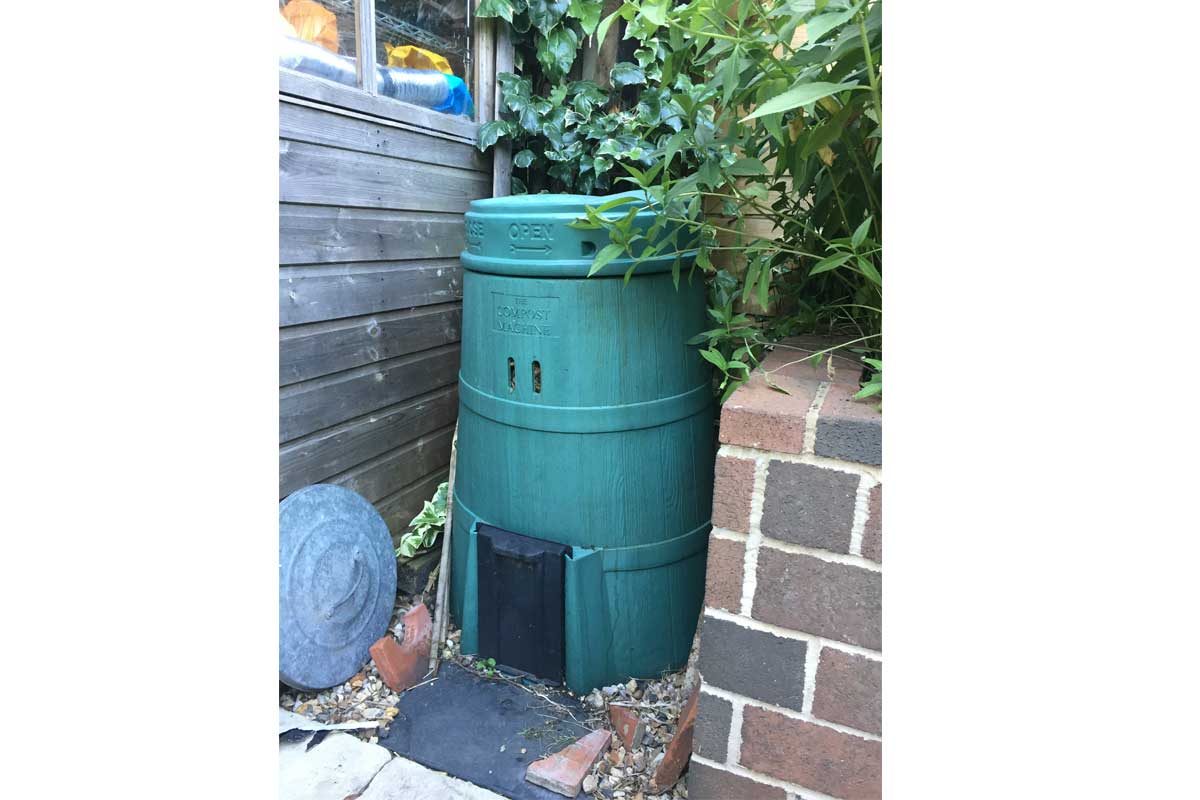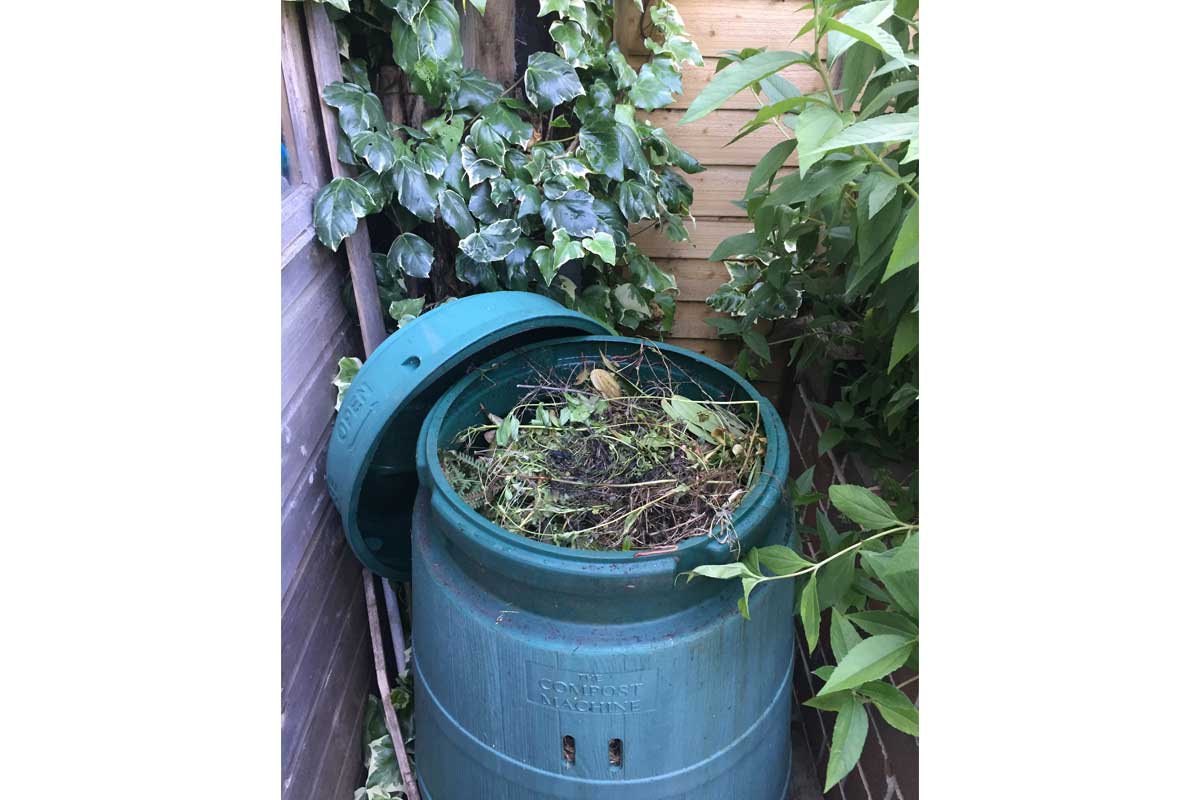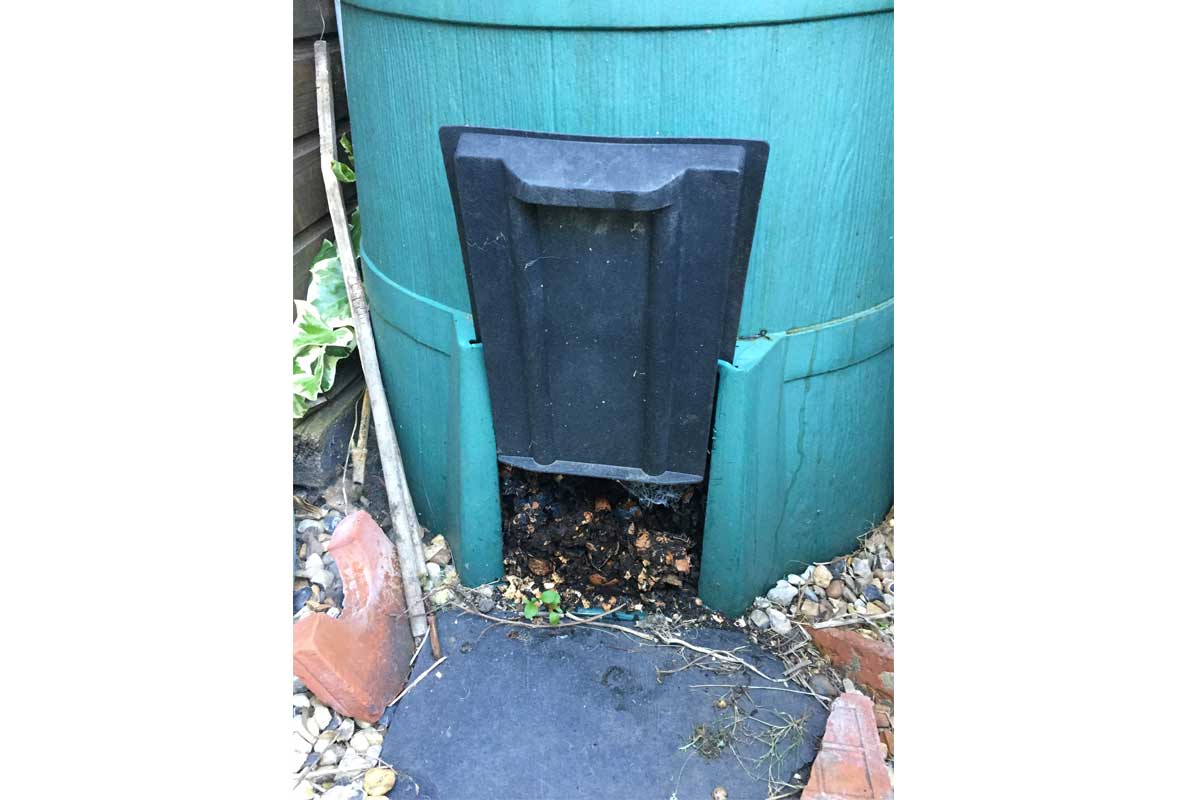In 2018 we threw away 6.6 million tonnes of household waste in the UK and almost three quarters of that total was food. This equals 4.5 million tonnes.
According to recent figures, only 1.9 million tonnes of this waste is recycled. The rest, around 2.6 million tonnes of food, is either incinerated, buried in landfill or flushed down our sewers.
Some of our food waste, is unavoidable such as bones, apple cores (I eat them but my daughter thinks I am weird!), banana skins and some vegetable peelings.
One way we can help reduce the total amount of waste is to compost the unavoidable food scraps such as apple cores, eggshells, tea bags.
Why is it good to compost?
Compost is the result of the natural process where bacteria and other organisms break down kitchen and garden waste (or ‘organic’ waste), and becomes a soil enhancer that is good for plants.
By composting our organic matter, we are returning nutrients back into the soil to allow the cycle of life to continue. Finished compost looks like soil—dark brown, crumbly, and smells like a forest floor.
It stops the food waste from going into landfill or being burnt, both of which lead to more greenhouse gases being released into the atmosphere.
Compost also adds nutrients (essential food such as nitrogen, phosphorous and potassium) and micro-nutrients back into the soil for your fruits, vegetables and flowers to grow. It helps your soil retain moisture, so you will not need to water your plants as often!
It also reduces the need to use chemicals, is good for wildlife, and best of all – it’s free!
Compost for a garden
Starting to compost is easy.
If you have a small garden, like me, you can use a compost bin. This is mine.


They are not very expensive to buy. You could also ask friends, neighbours or your social media or local community if there is one going spare. It doesn’t need to be new to do a good job. Using a second hand bin also means you would lengthening its life.
When choosing your spot, bear in mind that compost works faster in the sunshine.
What can I put in my compost bin?
Do put in:
Greens – these are rich in nitrogen.
- Uncooked vegetable and fruit scraps
- Crushed egg shells
- Plastic-free tea bags such as PG Tips, Pukka, Tea Pigs, Waitrose Duchy range, Clipper and Twinings pyramids. The other brands are still working on being plastic free!
- Coffee grounds
- Flowers
- Grass clippings – you don’t want too many though, as they make things slimy
Top tip: when you are cooking or baking something put your old egg shells in the oven too. This will dry them out, making them easier to crush up really small, so they break down faster.
Browns – these are rich in carbon.
- Small branches, cut into small pieces
- Nut shells, ideally crushed
- Egg boxes cut into pieces
- Cut up cardboard, toilet paper rolls
- Brown paper bags
- Autumn leaves
You can also put hair, yours or your pets (but no pets’ poo!), nail clippings (yuck, but true) and wooden ice lolly sticks in.
Don’t put in
There are things you should only put in your council’s food waste bin, as otherwise they will attract vermin. Although I love foxes, I don’t want to encourage them in my garden. Not only do they dig for worms but sometimes they bring me my neighbours’ slippers as a game!
- Cooked or baked food
- Meat, fish, eggs, dairy products – they attract rats
- Avoid putting too much citrus fruit in as the acid irritates the worms, and we don’t want the worms to leave – we need them!
- Large branches – you can leave them to rot down in the garden, which will be good for insects such as stag beetles, or you could put them in your council garden waste if you have one
- Large amounts of grass clippings as it can make your compost slimy. It is best to leave the grass clippings on the grass or put them in your garden waste bin if you have one
- Cat litter, dog poo or disposable nappies. These must go in the general waste bin
- Compostable coffee cups or ‘compostable plastic’ as they need a very high temperature of 60 degrees minimum to break down. Compostable coffee cups are accepted in very small quantities in council food waste collection as long as they are torn in small pieces, otherwise they go in your general waste bin.
How much of each?
Try to balance it so that you don’t have too many ‘greens’. About half and half, or one third browns to two thirds greens is good. It is not an exact science, and you may have to adjust as you go along.
If it gets smelly, add some browns, and if it doesn’t heat up, add some greens.
If you can turn it, this will add some oxygen and will speed up the process. I find it very difficult to turn the compost in my bin as it is narrow, so I use a small fork.
It is a natural process and in time, you will have compost. At the bottom of the bin you should have a small door that can be opened to remove the fully developed compost, while you keep adding new scraps to the top.

For smaller spaces, a wormery
If you don’t have a garden or if it is small, a wormery could be a great alternative option.
Composting with worms is called ‘vermicomposting’ and wormeries are perfect for dealing with kitchen waste. Wormeries use composting worms, which are not the same as earthworms.
Composting worms are native to the UK and in the wild can be found on the surface of the ground, generally in leaf litter. For your wormery you should buy worms from a trusted supplier.
Composting worms will eat waste from:
- Fruit and vegetable peelings,
- Cardboard,
- Paper,
- Bread,
- Pasta.
As with outdoor compost heaps, it is not recommended that meat is added to wormeries as it attracts flies.
You could even have both, and use your wormery as a complement to your garden compost heap.


